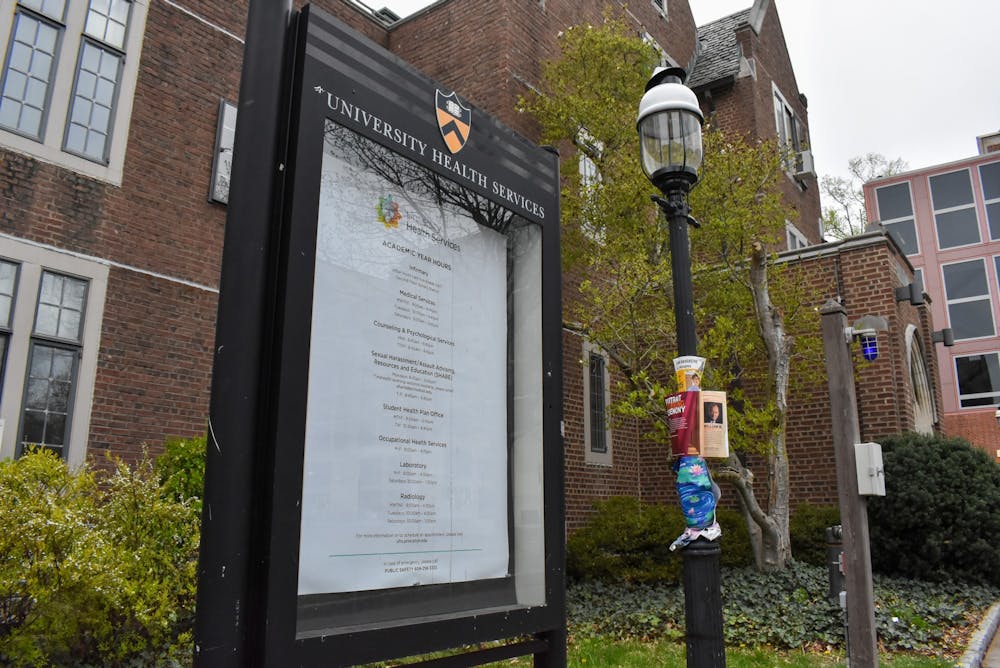I went to therapy for the first time during my freshman year of college.
A few weeks before school started, my friend, JD, passed away suddenly. I was working my summer job at the local hardware store and got a text during my break. I went numb. After mumbling to the manager that I had to go home, I walked out the door and started sobbing. I cried almost every day for weeks. Then, summer came to an end, and I was off to Princeton.
I knew I wasn’t okay, but I thought I could work through my feelings on my own. Then, a few months later, a Princeton friend casually mentioned she needed to head out of our lunch in Frist early to meet with her therapist. She was self-assured, always seemed upbeat, and knew what she wanted to do after graduation. I was surprised someone like her was in therapy. Her openness made me feel like I could admit that I wasn’t okay and get help. And so I did.
Princetonians are innovators, educators, creators, and leaders across industry, academia, non-profit, the arts, and government. We are also survivors of loss and trauma, depression, anxiety, addiction, disordered eating, postpartum depression, and other challenges. The undersigned alumni include those who are in therapy regularly; some episodically. Others have supported friends and family in accessing mental health resources. And others are allies — those who haven’t had direct experience with mental health services but know the importance of help-seeking and self-care.
Too many of us believed, like I did, that seeking help was a sign of weakness or failure. Many of us wish we sought help sooner. And we wish we had defeated the stigma, so you wouldn’t have to face it.
We know college can be really hard, and that the pressures — academic, career, financial, social, sexual, and the desire to be perfect, to name only a few — are real. We felt them, too.
We join together to acknowledge it’s okay to admit when you’re not okay and to urge you to access mental health resources during those times. Pause to check in with yourself: If you’re not okay, seek help in whatever way works for you. Self-care is for everyone.
We applaud the work students are doing to expand mental health support on campus.

The Princeton experience can be great, and the bonds within this community are strong. Please know this group is here for you, cheering you on. We look forward to meeting you at on-campus events, and during those joyful chance encounters beyond campus when you happen upon a fellow Princetonian. And we’re here for you in the hard times, too.
Jaclyn Lasaracina ’06
Joined by
Lawrence Azzaretti ’06

Lindsey Azzaretti ’06
Jessica Duke Beall ’06
Syon Bhanot ’06
Lisa Frist Bohn ’06
John Buckner ’85
Shaun Callaghan ’06
Catie Cambria ’06
J.D. Delafield ’89
Sarah Dobkin ’06
Elizabeth Feuille ’06
Elizabeth Friedman ’04
Donna Garnier ’05
Emily Harris ’06
Rob Hazan ’06
Philip Fajardo Hopkins ’04
John Hrvatin ’04
Amy Lai ’06
Nike Lawrence ’06
Lindsay McGregor ’06
Dave McShea ’85
Jamal Motlagh ‘06
Lisa Newman-Wise ’05
Natsai Nyakudarika ’08
Dan-el Padilla Peralta ’06
William Poor ’07
Mark Price ’06
Cecile Roach Delafield ’90
Kendyl Salcito ’04
Corey Sanders ’04
Brooke Shields ’87
Scott Syverson ’08
Virginia Pourakis Theodoropoulos ’05
Nitin K. Walia ’06
Debbie Karpay Weyl ’06
Jessie Z. Yu ’06








